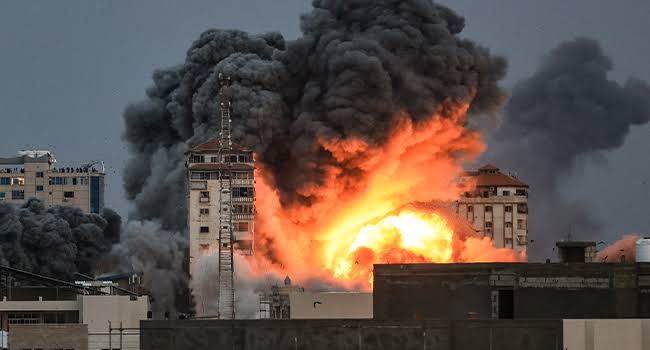Israeli forces continue their aggressive advance in Gaza, pushing deeper into the central and southern areas of the Gaza Strip as they clash with Hamas fighters. On Thursday, Palestinian health officials reported that Israeli strikes had killed at least 22 people across the enclave. In the northern Gaza town of Beit Lahiya, a strike on a house killed 11 people, while another in Al-Maghazi camp, in central Gaza, killed six, including a local journalist, according to medics. Five others were killed in separate strikes in the south.
The Israeli military stated that its forces had intensified operations in Deir Al-Balah in central Gaza and Khan Younis in the south, dismantling dozens of military structures, discovering rocket caches, and killing militants over the past 24 hours. The military also reported that 50 militants were killed in the area of Rafah, located in the far south of the enclave, over the past day.
This escalation followed a conversation between U.S. President Joe Biden and Israeli Prime Minister Benjamin Netanyahu on Wednesday, during which Biden urged Netanyahu to expedite a truce deal in Gaza and facilitate the release of hostages, according to the White House. The phone call came after U.S. Secretary of State Antony Blinken’s recent visit to the region, which concluded without achieving a breakthrough in the conflict, now in its tenth month.

The Biden administration has been pushing for a ceasefire deal in the Gaza war, which has drawn widespread international criticism due to the high civilian death toll. Biden’s support for Israel has also faced domestic scrutiny, with his administration seeking to resolve the conflict before his term ends. Such a resolution could bolster the Democratic Party, potentially aiding Vice President Kamala Harris’s presidential prospects.
Hamas has accused Israel and the U.S. of obstructing a deal. The group seeks an agreement that would end the war and secure the release of Israeli and foreign hostages in exchange for the freedom of Palestinians imprisoned by Israel. However, Netanyahu remains adamant that the war will only end once Hamas is fully defeated. He argues that any ceasefire to facilitate an exchange of hostages and prisoners would merely be a temporary pause, with Hamas still posing a significant threat.
The prospect of a ceasefire remains complicated, given the irreconcilable positions of the parties involved. Israel is unwilling to risk a temporary halt in fighting, fearing that Hamas would use it to regroup and strengthen with support from Iran and other resistance groups. Hamas, in turn, shows no signs of easily relinquishing its hold on Gaza. Without a sustainable resolution, the chances of lasting peace in the Middle East remain slim. Any agreement that fails to address the underlying issues risks being a temporary bandage on a deep, festering wound.
















